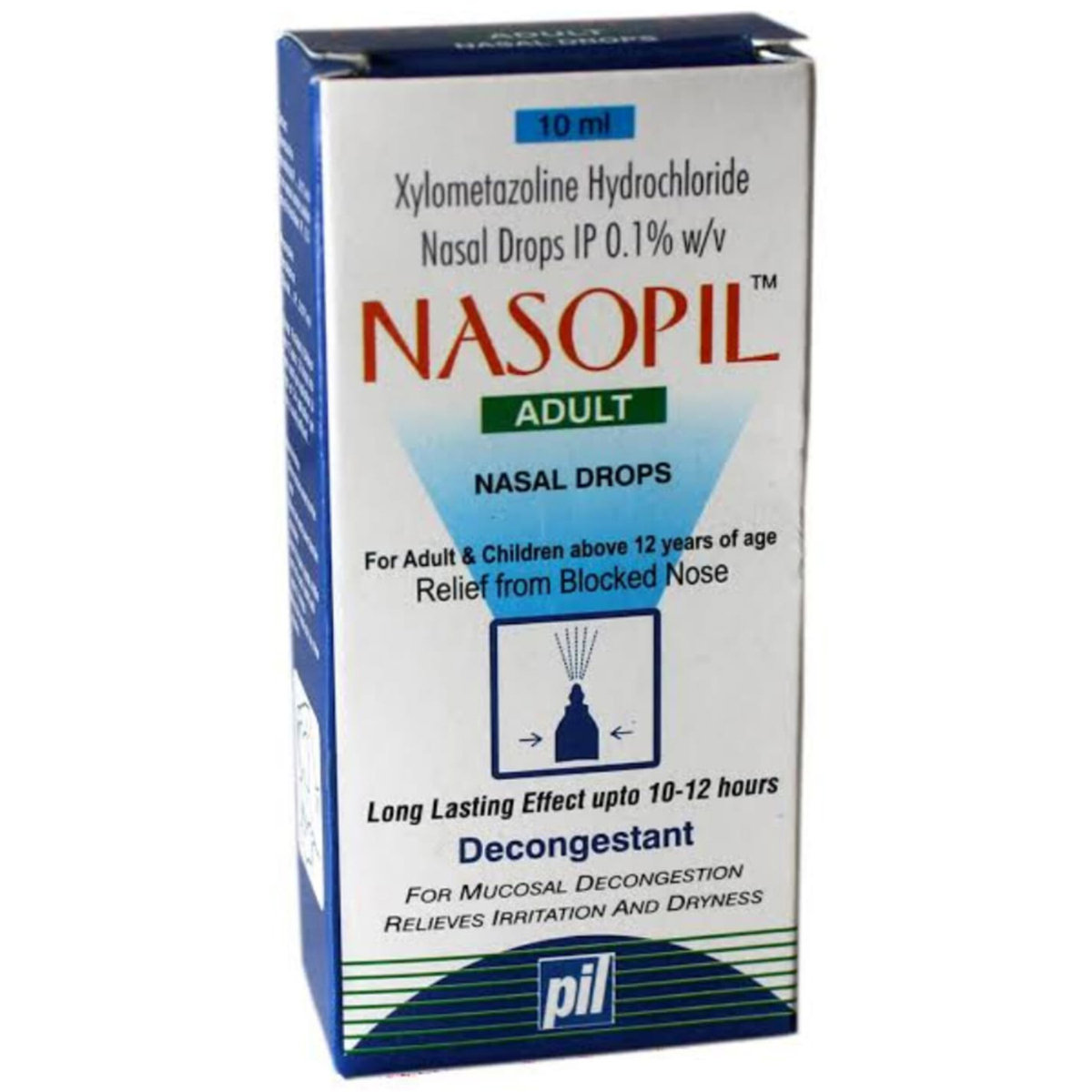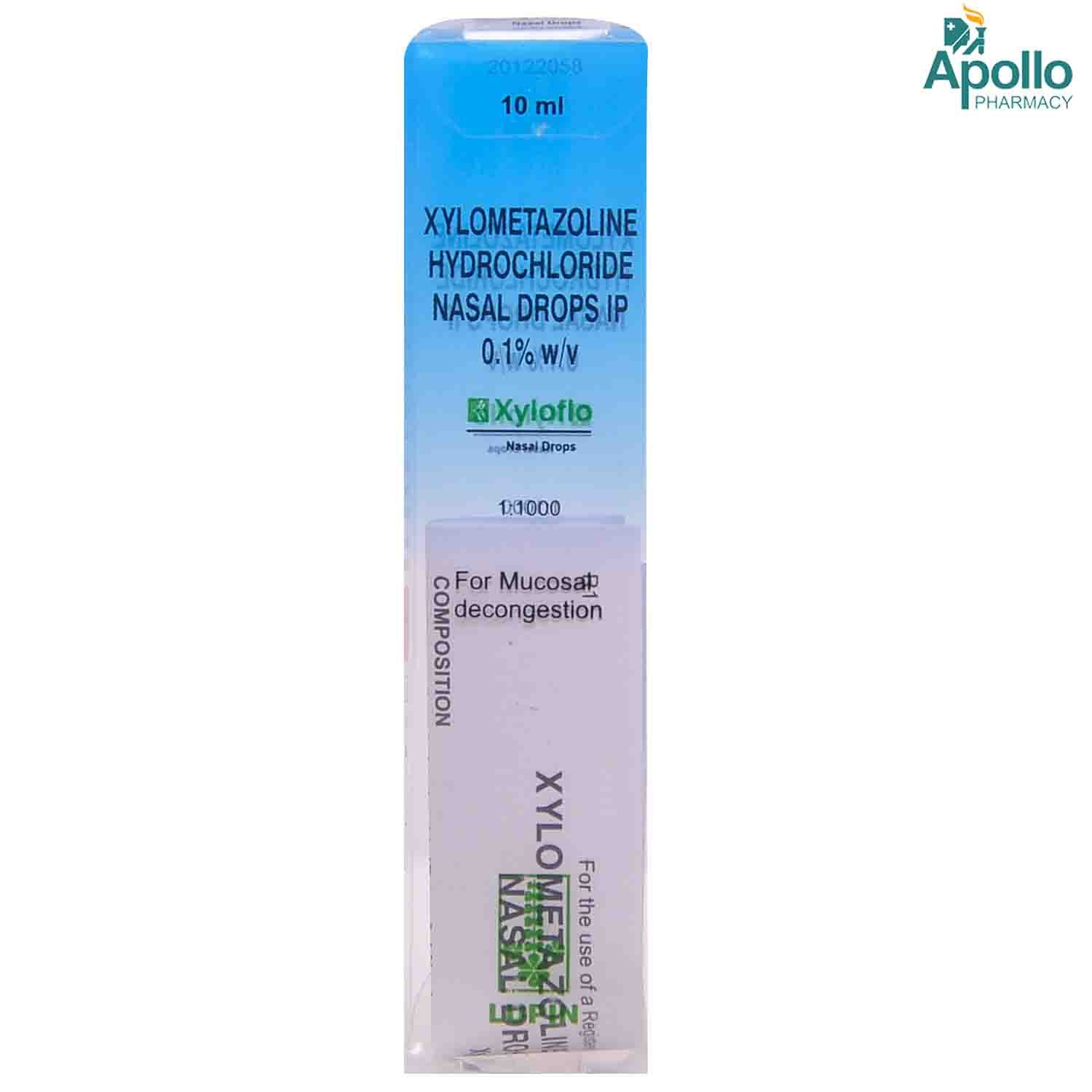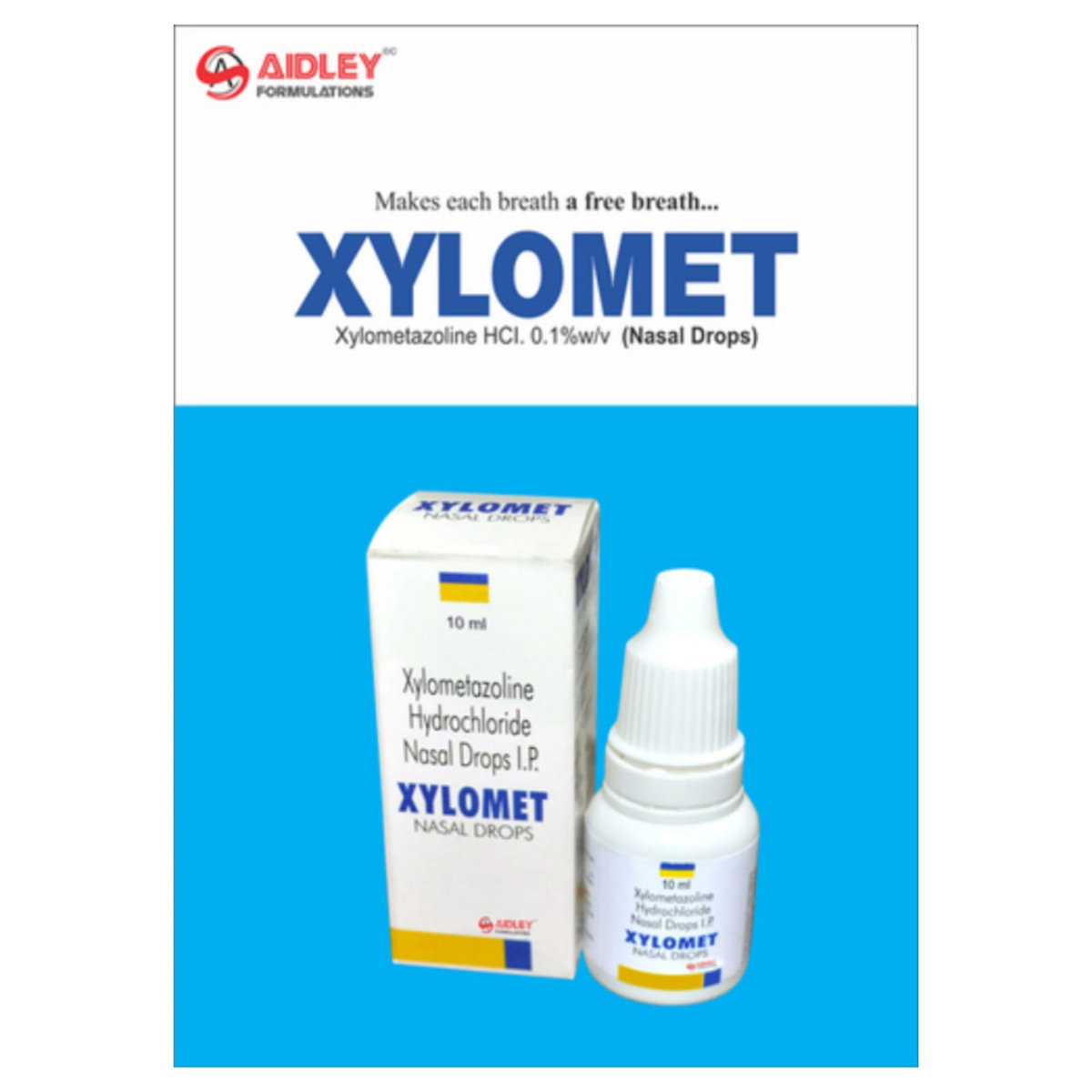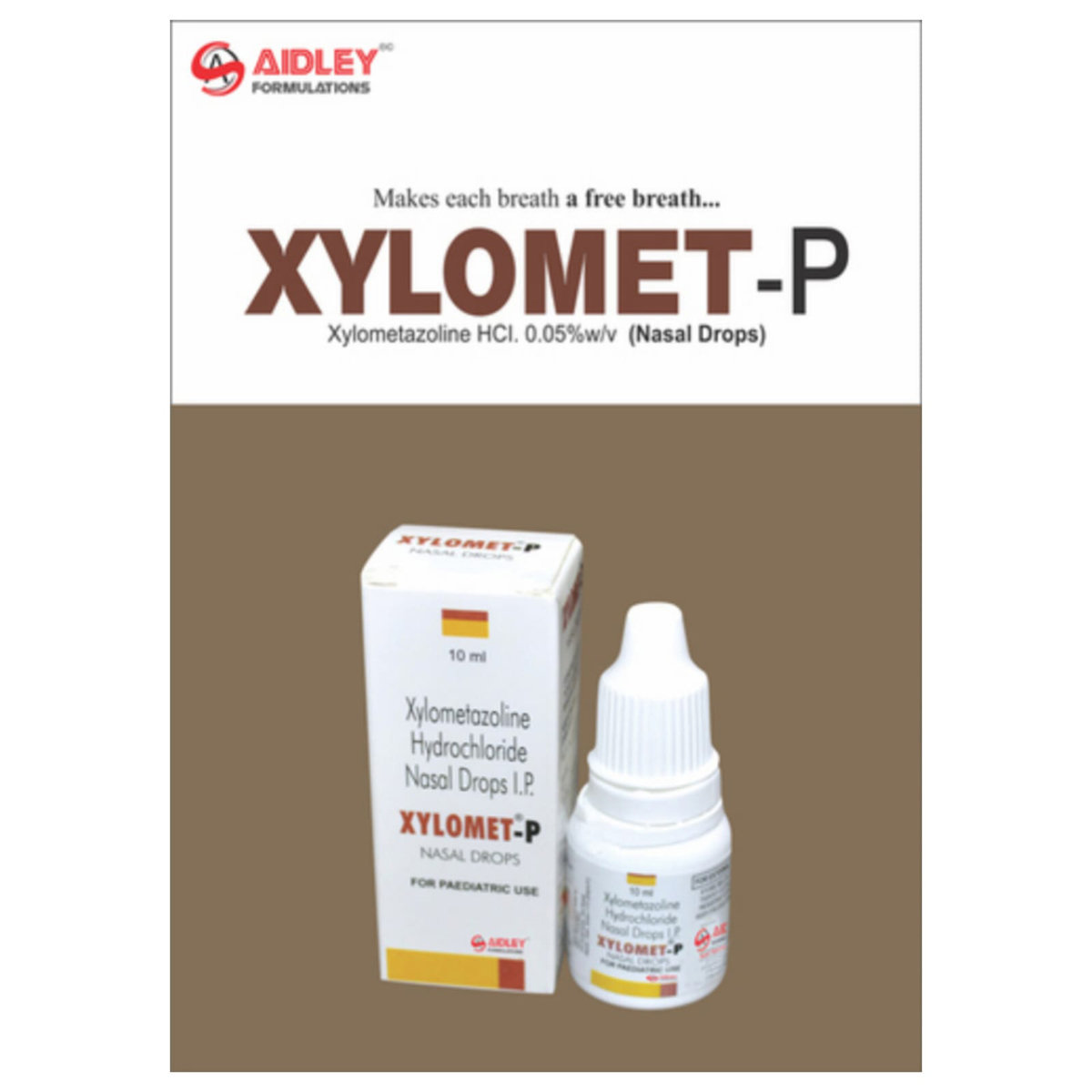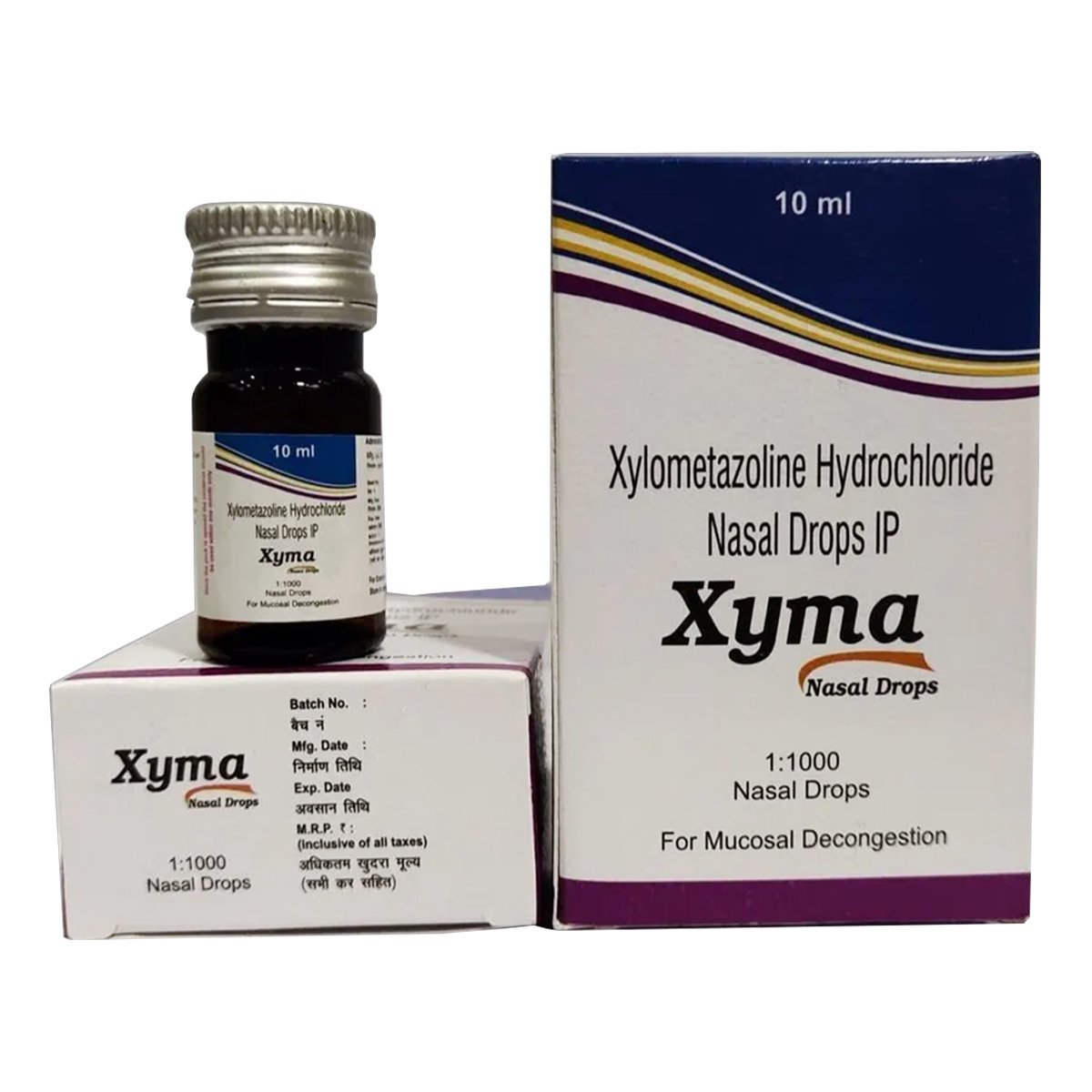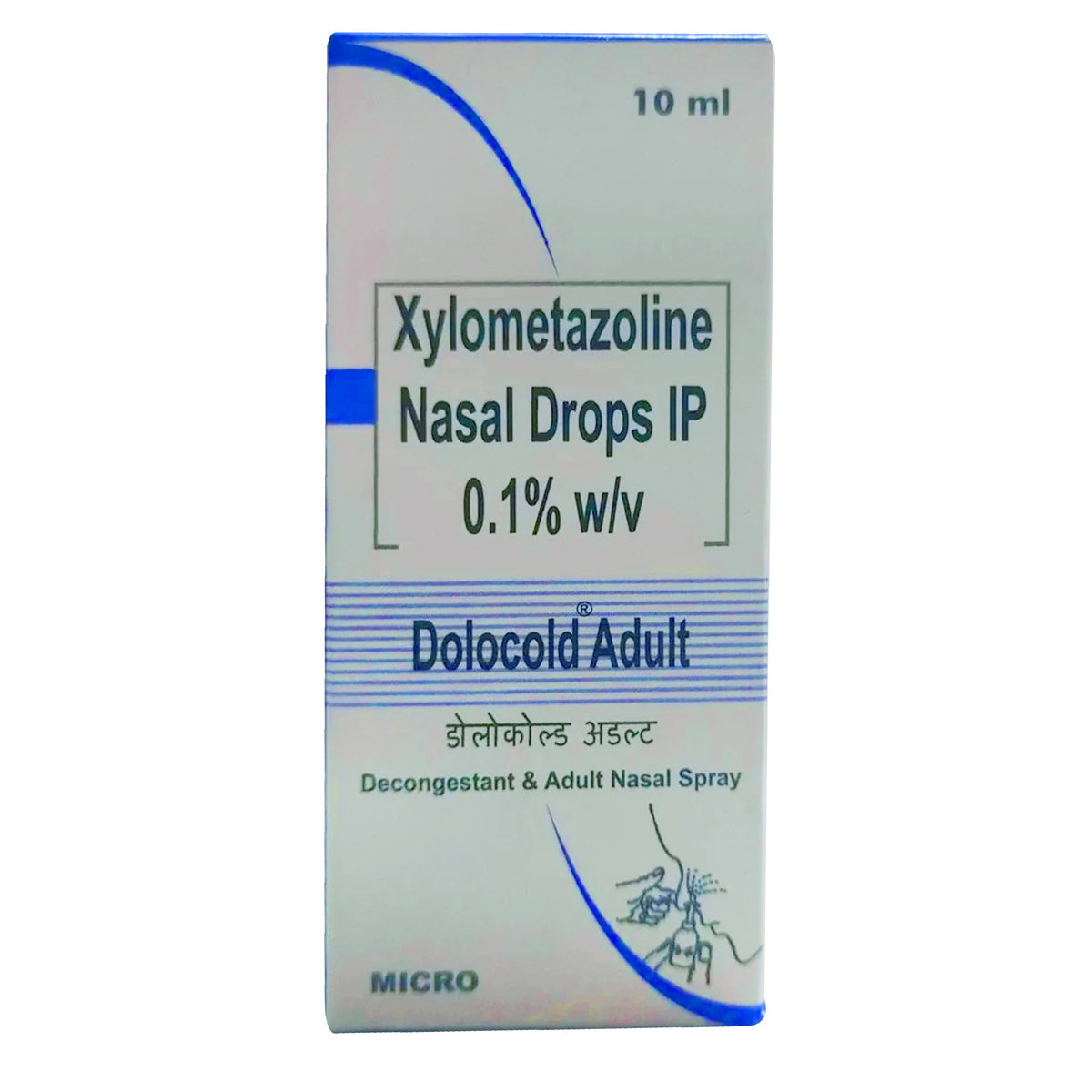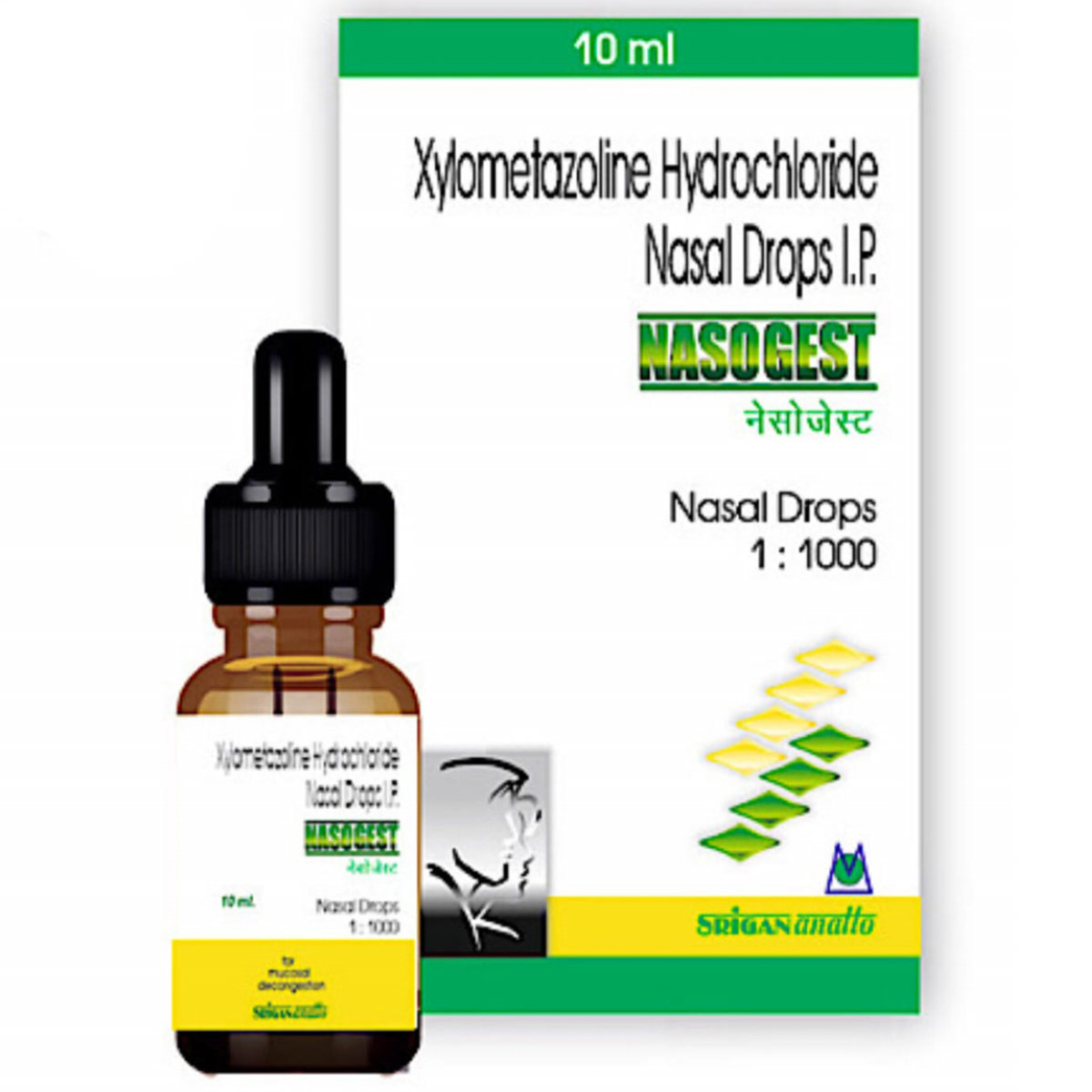Xylometazoline Hydrochloride
About Xylometazoline Hydrochloride
Xylometazoline Hydrochloride belongs to the group of nasal decongestants. It is used to reduce irritation and inflammation resulting from nose blocks and cold. Xylometazoline Hydrochloride finds application in the treatment of mucosal inflammation seen in colds, allergic rhinitis (nasal inflammation) and sinusitis (flaring up of the sinuses). Allergic rhinitis is a swelling of the inside of the nose and nostrils, caused by allergies. Sinusitis is the flaring of nasal sinuses, clogged and blocked by mucous secretions and fluid.
Xylometazoline Hydrochloride is composed of ‘’Xylometazoline hydrochloride’’. Xylometazoline Hydrochloride works by constricting inflamed blood vessels, clearing the airways and allowing for a freer flow of air. Xylometazoline Hydrochloride hence acts as a potent decongestant and relieves the nose of inflammation.
Xylometazoline Hydrochloride is meant for external use only. Do not ingest Xylometazoline Hydrochloride. Use exactly in the dose and duration suggested by the physician. Close the bottle tightly after use. In some cases, Xylometazoline Hydrochloride may cause certain very occasional side effects such as mild local irritation, stinging, nausea, and nasal dryness. Most of these side effects do not require medical attention and will resolve gradually over time. However, you are advised to talk to your physician if you experience these side effects consistently.
Avoid using Xylometazoline Hydrochloride if you are allergic to it. Inform your physician if you suffer from adrenal gland problems such as phaeochromocytoma or eye problems such as angle-closure glaucoma or prostate enlargement. Discuss your entire medical and surgical history with the physician and keep them informed in case of a history of head injury and or recent neurosurgery. Inform your physician of any history of a very dry nasal passage as in case of rhinitis sicca or atrophic rhinitis. Discuss any history of the presence of hypertension (high BP), diabetes, depression, thyroid issues or heart disease with your physician. Consult your doctor before using Xylometazoline Hydrochloride if you are pregnant or breastfeeding.
Uses of Xylometazoline Hydrochloride
Medicinal Benefits
Xylometazoline Hydrochloride is a nasal decongestant that acts on the alpha receptors of the nasal mucosa, causing the inflamed blood vessels to constrict, thereby relieving the swelling. It contains Xylometazoline hydrochloride. Xylometazoline Hydrochloride is used to relieve the pain, swelling and inflammation caused by respiratory infections. Xylometazoline Hydrochloride helps in decongesting the nose of any blockages and secretions, which would otherwise clog the nasal passage and hamper the seamless flow of air. Hence, Xylometazoline Hydrochloride aids breathing and respiration in case of nasal infections.
Directions for Use
Storage
Side Effects of Xylometazoline Hydrochloride
- Temporary nasal stinging
- Nausea
- Nasal dryness
- Lethargy
Drug Warnings
Avoid using Xylometazoline Hydrochloride if you are allergic to it. Discuss your entire medical history with your treating physician and inform them of any history of diabetes, hypertension, enlarged prostate, thyroid issues, dry nasal passages or an adrenal tumour called phaeochromocytoma, previous history of any kind of neurosurgery. Inform the doctor if you are on any antidepressant treatment. Consult the doctor before using Xylometazoline Hydrochloride during pregnancy and breastfeeding. Avoid getting Xylometazoline Hydrochloride in your eyes or mouth.
Drug Interactions
Drug-Drug Interactions: Xylometazoline Hydrochloride may interact with tricyclic anti-depressant (amitryptylline), anti-hypertensive (acemetacin, guanethidine), MAOI’s (selegiline, isocarboxacid, phenelzine), anti-diabetic (acetohexamide, acarbose), pain killer (acelofenac), antiarrythmic (ajmaline), bronchodilator (aclidinium) etc.
Drug-Food Interactions: No interactions found.
Drug-Disease Interactions: Xylometazoline Hydrochloride should be used with caution in patients with a known hypersensitivity disorder, acute angle-closure glaucoma, rhinitis sicca, atrophic rhinitis, prostate enlargement, phaeochromocytoma and any heart disease.
Drug-Drug Interactions Checker List:
Safety Advice

Alcohol
cautionIt is not known if alcohol interacts with Xylometazoline Hydrochloride, but it is best avoided. Please consult a doctor in case of any concerns.

Pregnancy
cautionConsult your physician before using Xylometazoline Hydrochloride in pregnancy.

Breast Feeding
cautionConsult your physician before using Xylometazoline Hydrochloride in pregnancy.

Driving
not applicableXylometazoline Hydrochloride is unlikely to affect your ability to drive.

Liver
consult your doctorXylometazoline Hydrochloride is most probably safe on the liver. Please consult your physician in case of any concerns.

Kidney
consult your doctorXylometazoline Hydrochloride is most probably safe on the kidney. Please consult your physician in case of any concerns.

Children
cautionNot enough information is available on whether Xylometazoline Hydrochloride is safe for use in children below 12 years of age. Avoid Xylometazoline Hydrochloride use in children below 12. Consult your physician before use.
Habit Forming
Diet & Lifestyle Advise
- In case of environmental allergies, try to avoid the outdoors when allergens are high in the atmosphere.
- In case of dust allergies, wear a mask while dusting or if you go near anything dusty.
- Vacuum your house as often as you can and invest in an air purifier.
- Try not to farm or spend too much time in the garden in case of mold allergies.
- Steam inhalation works wonders with blocked sinuses. Safely inhale steam using a proper equipment to relieve nasal mucosa of congestion.
- Smoking can aggravate both rhinitis and sinusitis. Avoid smoking.
- In case of fur allergies, stay away from pets.
- To control dust mites, wash sheets and bed linen in hot water every week and dry in a hot dryer.
- Avoid wall-to-wall carpeting at home.
- Cover mattresses with allergen-proof covers and bedspreads.
Special Advise
- Do not take Xylometazoline Hydrochloride for more than 7 days in a row as this may aggravate stuffiness.
- For hygiene purposes, throw away the bottle of Xylometazoline Hydrochloride after 28 days.
- Seek immediate medical attention in case of an allergic reaction to Xylometazoline Hydrochloride. Symptoms include hives, rash, facial and lip swelling, difficulty breathing and/or speaking etc.
Patients Concern
Disease/Condition Glossary
Rhinitis: An inflammation of the nose or nasal passage is called rhinitis. When it occurs due to an allergen, it is called allergic rhinitis. Common allergens include house dust, mites, animal dander and pollen. Symptoms of allergic rhinitis include a blocked nose, headache, pain in the face, sneezing and itchy eyes.
Sinusitis: Sinusitis is the inflammation of the sinuses that is caused by their getting blocked by fluid and secretion. A headache is the most common manifestation of sinusitis. Other symptoms include facial pain, runny nose and congestion.
FAQs
Xylometazoline Hydrochloride works by clearing the airways and removing any nasal congestion by constricting inflamed blood vessels.
Xylometazoline Hydrochloride is not recommended for use in the ears and has no role in the removal of ear wax.
One of the common side effects of Xylometazoline Hydrochloride is drying up of the nasal passage, hence it is best to avoid the use of Xylometazoline Hydrochloride if you suffer from any disease that renders your nose very dry. In case of any concerns, please consult the physician.
Take Xylometazoline Hydrochloride in the duration suggested by the physician. In case you have missed a dose, use Xylometazoline Hydrochloride as soon as you remember.
No. It is not at all recommended to use Xylometazoline Hydrochloride in the eye.

